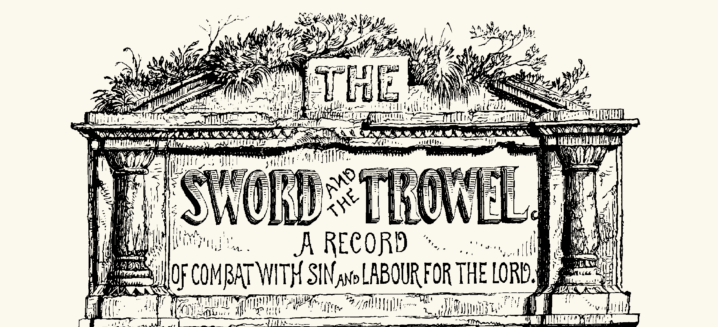
This article comes from the February 1865 edition of The Sword and The Trowel magazine.
Introduction
Debates surrounding the doctrines of grace have gone on for centuries within the universal church. From Spurgeon’s perspective, the problem was simple—men were saved Dei Gratia (by the grace of God). “By Grace Are Ye Saved,” by C.H. Spurgeon, testifies to the reader of the undeserved gift of grace from God. This grace is for those, as Spurgeon says, “who have no worth, no merit, no goodness whatever!”
By Grace Are Ye Saved
IT is by the grace of God that ungodly men are preserved from instant death. The sharp ax of justice would soon fell the barren tree if the interceding voice of Jesus did not cry, “Spare him yet a little.” Many sinners, when converted to God, have gratefully acknowledged that it was of the Lord’s mercy that they were not consumed. John Bunyan had three memorable escapes before his conversion, and mentions them in his “Grace Abounding” as illustrious instances of long-suffering mercy. Occasionally such deliverances are made the means of affecting the heart with tender emotions of love to God, and grief for having offended him. Should it not be so? Ought we not to account that the longsuffering of God is salvation? (2 Peter 3:15.) An officer during a battle was struck by a nearly spent ball near his waistcoat pocket, but he remained uninjured, for a piece of silver stopped the progress of the deadly missile. The coin was marked at the words DEI GRATIA (by the grace of God). This providential circumstance deeply impressed his mind, and led him to read a tract which a godly sister had given him when leaving home. God blessed the reading of the tract; and he became, through the rich face of God, a believer in the Lord Jesus.
Reader, are you unsaved? Have you experienced any noteworthy deliverances? Then adore and admire the free grace of God, and pray that it may lead you to repentance! Are you inquiring for the way of life. Remember the words DEI GRATIA, and never forget that by grace we are saved. Grace always pre-supposes unworthiness in its object. The province of grace ceases where merit begins: what a cheering word is this to those of you who have no worth, no merit, no goodness whatever! Crimes are forgiven, and follies are cured by our Redeemer out of mere free favor. The word grace has the same meaning as our common term gratis: Wickliffe’s prayer was, “Lord save me gratis.” No works can purchase or procure salvation, but the heavenly Father giveth freely, and upbraideth not.
Grace comes to us through faith in Jesus. Whosoever believeth on Him is not condemned. O, sinner, may God give thee grace to look to Jesus and live. Look now, for to-day is the accepted time!